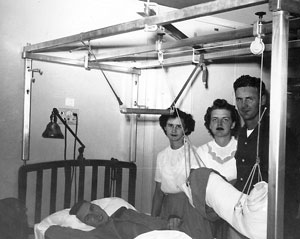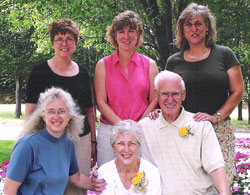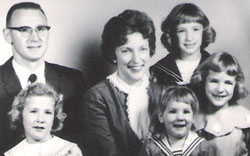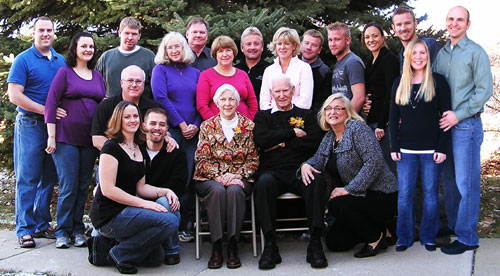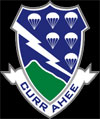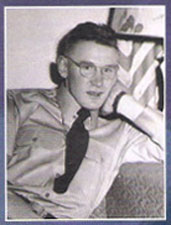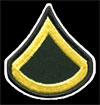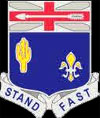| North
High School Wall of Honor Robert Paul Wren Class of June, 1951 |
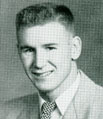 |
|||||||||||||||||||||||||||||||||||||||||||||||||||||||||||||||||||||||||||||||||||||||||||||||||||||||||||||||||||||||||||||||||||
|
Research done by Claradell Shedd, class of 1953. |
||||||||||||||||||||||||||||||||||||||||||||||||||||||||||||||||||||||||||||||||||||||||||||||||||||||||||||||||||||||||||||||||||||
|
||||||||||||||||||||||||||||||||||||||||||||||||||||||||||||||||||||||||||||||||||||||||||||||||||||||||||||||||||||||||||||||||||||
|
||||||||||||||||||||||||||||||||||||||||||||||||||||||||||||||||||||||||||||||||||||||||||||||||||||||||||||||||||||||||||||||||||||
|
||||||||||||||||||||||||||||||||||||||||||||||||||||||||||||||||||||||||||||||||||||||||||||||||||||||||||||||||||||||||||||||||||||
| *Camp Breckinridge,
KY (1952-1953) The 42nd Tank Battalion (Medium), operating as the Infantry Leaders Course for the 101st Airborne Division, has the mission of selecting potential leaders early in their military careers, and developing their capacity for leadership. To attain its mission, the Leaders Course gives the selected trainees eight weeks of training in instructional methods and techniques for both indoor and outdoor classes, training in dismounted drill and physical training, public speaking and diction, basic principles of leadership, small job management, leading small units in combat, training small units and infantry tactics. The course is divided into two phases. Phase I, consisting of the first five weeks, is spent in the 42nd Tank Battalion area and bivouac area receiving formal instruction and practical application in the subjects mentioned, Phase II, the last three weeks of training, is spent assigned to either Division Faculty or the 42nd Tank Battalion during which time, the students are given the maximum opportunity to lead and instruct men in basic training. Link to details of training at Breckinridge: http://506infantry.org/histraining/hisbreckmemo05.html and http://506infantry.org/histraining/hisbreckmemo03.html and below (1952-1953) Introduction to Basic Training at Breckinridge, KY: http://506infantry.org/histraining/hisbreckarticle02.html Basic Training; Weeks 1-6: http://506infantry.org/histraining/hisbreckphoto03.html Basic Training; Weeks 7-12: http://506infantry.org/histraining/hisbreckphoto04.html Basic Trainign; Weeks 13-16: http://506infantry.org/histraining/hisbreckphoto05.html **Christmas Hill, Korea (Injured in combat on July 15, 1953) Christmas Hill Geodetic Reference: N38 19'55.81" E127 55'7.13" In the pre-dawn hours of June 25, 1950, the North Korean army invaded South Korea, igniting a conflict that would last for the next three years. On July 5, the United States intervened and engaged North Korean troops at Osan and was summarily defeated. By November, China had intervened on behalf of the North Koreans, further escalating the conflict. One Chinese attack resulted in the longest retreat of any American military unit in history. The war would rumble on at places named Pusan, Inchon, and Chosin, and famously at the battles of Bloody Ridge, Old Baldy, Heartbreak Ridge, and Pork Chop Hill. Two weeks before the end of the war, one of Korea’s bloodiest battles was fought on Hill 1090, also known as “Christmas Hill.” Chinese forces had massed for their largest offensive in two years. In the Kumsong River Valley, South Korean lines “bulged” outward for three miles, which was perceived by the Chinese to be a weak spot. The twenty-mile line was held mostly by South Korean troops, with U.S. troops holding the left flank on Sniper Hill and the right flank on Christmas Hill. On July 13, 1953, the Chinese attacked the bulge with six divisions of nearly 80,000 men. Fighting was reported to “reach an intensity not seen on the Korean battleground since 1951,” and that “hostile artillery fired more rounds than it had at any time during the war.” Hordes of advancing Chinese swarmed in human wave attacks. One American regiment took an estimated 20,000 rounds of artillery fire, but still managed to hold their ground. From July 14 to July 18, Christmas Hill was attacked by day and night; however, advancing Chinese troops never reached the top. 3rd Division unit historian W.F. Strobridge wrote: 'Never Got to the Top of the Hill' Christmas Hill on the east flank was the site of intense fighting. E Co., 180th Regt., 45th Div., held the position until July 14, when it was relieved by K Company. During the early morning hours of July 15, some 1,500 Chinese attacked. "A short round from our own artillery hit the ammo belt on our .50 caliber machine gun, and the ruptured shell blew up the gun," said Sgt. Dana Gruetzmacher, 4th Pit., K Co. "All we had was a .45 caliber pistol and about three dozen rounds. Luckily, the Chinese never got to the top of the hill. Our head count for the whole company was 43 alive and 80 dead or wounded." http://findarticles.com/p/articles/mi_m0LIY/is_10_90/ai_103380669/ Here is Bob's personally-written rendition: "I feel like Staff Sgt. Salvatore Giunta (Iowan who received the Medal of Honor yesterday, 11/18/10) upon being awarded the Medal of Honor said, "Although this is so positive, I would give this back in a second to have my friends with me right now." When I first went on duty at the 38th Parallel, there was not a blade of grass to be seen. It has been a stationary battle line for a long time. I was there over the 4th of July (1953) and, right after it turned dark, all of our weapons (artillery, mortar, small arms, tanks, tracer shells) opened up on the enemy lines. It was the best fireworks I ever saw. I would not have liked being on the receiving end. There are some pleasant and some very painful memories. On the main line, we stayed in fortified bunkers that slept up to 4-6 people. We had a ROCK (Korean) soldier in our bunker. We ate out of our canteen cup -- c-rations. We took a shower in an inprovised tank we set up by the river that ran through our camp. We used to get c-rations that included cigarettes. There is where I first started smoking. We had a lot of free time on our hands. It took me from 20-30 years to stop smoking. I moved onto a mountain peninsula called Christmas Hill. It was a very rough area with no roads, but just mountain trails. I remember hearing a grenade by the trail on which we were walking. Everyone hit the dirt trail. It was just one of the guys who had lost his grenade out of his back pack. We had an artillery forward observer with us who was zeroing in the artillery. He zeroed a shell into our trenches and killed one of our soldiers. We had enemy artillery blow up a fellow soldier (George Washington from St. Louis) in the trench where I spent my nights. I did not like going back into that trench. Every so often they would give us a couple of days off of the front line. They called it R&R; rest and relaxation. We called it I&I; intoxication and intercourse. They came back from R&R with enough alcohol to keep them inebriated. One guy came back with a Bible with which he prayed full time. I remember I received a letter from Doug Wieck who was in the Air Force stationed in Germany. He had been skiing in the Swiss Alps. It had been raining in Korea for about a week, and our bunker had two inches of water on the ground. I knew then that I should have volunteered for the Navy or Air Force, not having been drafted into the Army. The Chinese Army attacked us one night, and I was hit by a shell and received shrapnel wounds to my left leg. I was able to get in one of our bunkers and put a tourniquet on to help stop the bleeding. In thee morning, I could not believe I was still alive. The bunker looked like there was two inches of my blood on the ground. The Army sent in a company of stretcher bearers to carry off the wounded. The two guys who carried me kept dropping me off of the stretcher. I said, "Let me put my arms around your shoulders and maybe we can make it out that way." They had a MASH medical unit within miles of the front line, or I would not be here today. I was sent to Japan to a hospital. I remember giving money to a sergeant to get some gifts for my family. I never saw him again. From Japan, I flew on a medical evacuation plane to Fitzsimons Army Medical Center in Denver, CO. There were four soldiers who had experienced mental breakdowns who had to be chained to their seats. I remember landing in Hawaii before we had taken off from Tokyo because we crossed the International Date Line where we gained a day. They had me scheduled to amputate my left leg because I had a bad infection, but one of the doctors said, "Let's elevate his leg and put some salt water on it." They then put me back on active duty at Fort Carson, CO, where I was discharged." |
||||||||||||||||||||||||||||||||||||||||||||||||||||||||||||||||||||||||||||||||||||||||||||||||||||||||||||||||||||||||||||||||||||
|
||||||||||||||||||||||||||||||||||||||||||||||||||||||||||||||||||||||||||||||||||||||||||||||||||||||||||||||||||||||||||||||||||||
|
||||||||||||||||||||||||||||||||||||||||||||||||||||||||||||||||||||||||||||||||||||||||||||||||||||||||||||||||||||||||||||||||||||
|
||||||||||||||||||||||||||||||||||||||||||||||||||||||||||||||||||||||||||||||||||||||||||||||||||||||||||||||||||||||||||||||||||||
|
||||||||||||||||||||||||||||||||||||||||||||||||||||||||||||||||||||||||||||||||||||||||||||||||||||||||||||||||||||||||||||||||||||
| 10/21/10: Living in IA and AZ. Died: 11/28/13. Obituary: http://www.legacy.com/obituaries/azcentral/obituary.aspx?pid=168387767 | ||||||||||||||||||||||||||||||||||||||||||||||||||||||||||||||||||||||||||||||||||||||||||||||||||||||||||||||||||||||||||||||||||||
| Music: "Wind Beneath My Wings" | ||||||||||||||||||||||||||||||||||||||||||||||||||||||||||||||||||||||||||||||||||||||||||||||||||||||||||||||||||||||||||||||||||||
| Home
|
Back/allyears |
WWI |
WWII |
Korea |
Vietnam |
Afghanistan/Iraq |
Lyrics
|
Refs/Awards |
Contact ©2018-csheddgraphics All rights reserved. All images and content are © copyright of their respective copyright owners. |
||||||||||||||||||||||||||||||||||||||||||||||||||||||||||||||||||||||||||||||||||||||||||||||||||||||||||||||||||||||||||||||||||||



